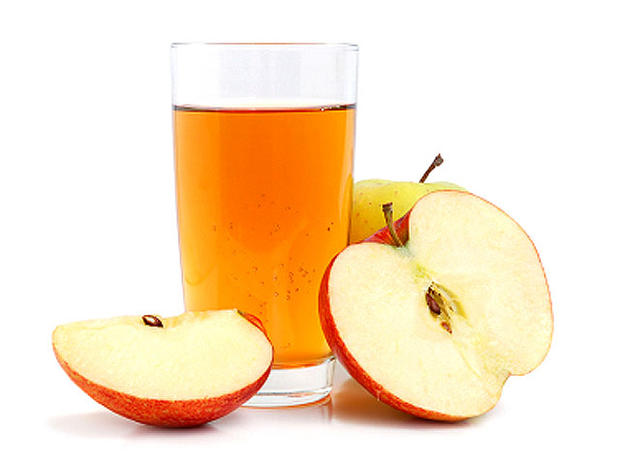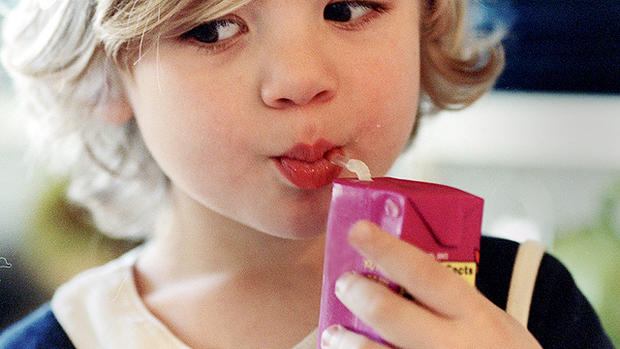Consumer Reports finds high arsenic levels in juice: Was Dr. Oz right?
(CBS) Is juice dangerous? A new study from Consumer Reports suggests some popular juices contain high levels of arsenic and lead.
PICTURES: Consumer Reports spotlights arsenic, lead in 10 juices
Amid public concern over contaminated juice, the magazine announced Wednesday that it had tested 88 juice samples, and found roughly 10 percent of samples - mostly from five brands - had arsenic levels above the federal bottled water standard of 10 parts per billion (ppb).
Arsenic levels in apple juices ranged up to 13.9 ppb. Grape-juice levels were even higher, up to 24.7 ppb. Most of the arsenic was inorganic, a form that has been linked to cancer.
"People sometimes say, 'If arsenic exposure is so bad, why don't you see more people sick or dying from it?,'" Dr. Joshua Hamilton, a toxicologist and chief academic and scientific officer at the Marine Biological Laboratory in Woods Hole, Mass., told Consumer Reports. "But the many diseases likely to be increased by exposure even at relatively low levels are so common already that its effects are overlooked simply because no one has looked carefully for the connection."
Arsenic wasn't the only contaminant found in juice. Twenty-five percent of samples contained lead at levels above 5 ppb, the FDA limit for bottled water. There is no arsenic or lead standard in juice, prompting the magazine to call on the FDA to consider implementing standards for juice since kids drink a lot of juice. According to Consumer Reports, a recent poll shows 35 percent of children 5 and younger exceed pediatrician's recommendations by drinking more than six ounces of juice per day - the size of a juice box.
The Juice Products Association disagreed.
"Juice is not water," the association told ABC News. "To compare the trace levels of arsenic or lead in juice to the regulatory guidelines for drinking water is not appropriate."
Last September, talk show host Dr. Mehmet Oz created a stir when he announced on his show that apple juice contains potentially dangerous levels of arsenic, CBS News reported.
"The position of the show is that the total arsenic needs to be lower," Oz said at the time. "We did the tests. We stand by the results and we think the standards should be different."
Dr. Oz was blasted by critics for "health fear mongering," even prompting the FDA to release a statement discrediting his report.
So what does the FDA have to say now?
"FDA is confident in the overall safety of apple juice consumed in this country," FDA spokesperson Stephanie Yao told CBS News in an email. "By the same token, a small percentage of samples contain elevated levels of arsenic. In response, FDA has expanded our surveillance activities and is collecting additional data to help determine if a guidance level can be established that will reduce consumer's exposure to arsenic in apple juice."
Consumer Reports study is found here.


